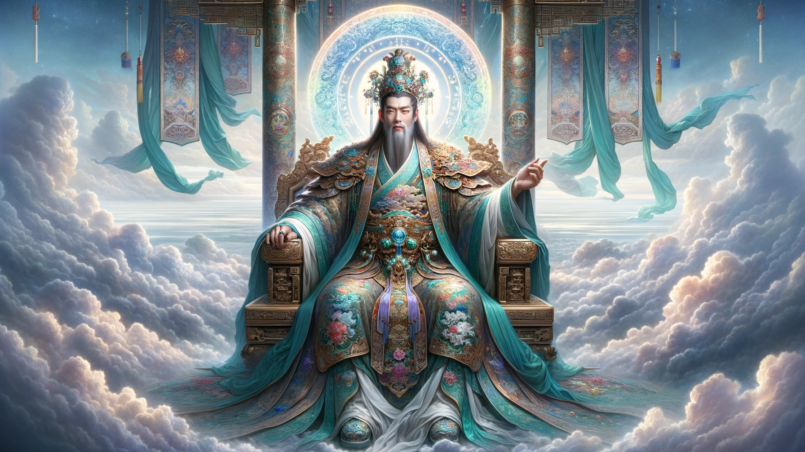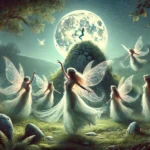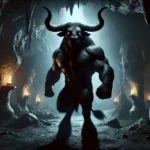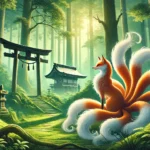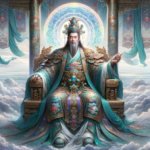Chinese mythology is rich with a diverse pantheon of gods and deities, each playing a unique role in the cosmic order and human affairs. From the supreme Jade Emperor to the compassionate Guan Yin, these figures embody a wide range of virtues and powers. They influence aspects of daily life, spiritual beliefs, and cultural traditions. This blog will explore the top 10 gods and deities in Chinese mythology, delving into their stories, significance, and lasting impact on Chinese culture.
1. Yu Huang (Jade Emperor)
The Jade Emperor, or Yu Huang, is the supreme ruler of heaven in Chinese mythology. As the highest authority in the celestial hierarchy, he governs all realms, deities, and mortals, embodying wisdom, fairness, and compassion. Originating from Taoist mythology, the Jade Emperor plays a vital role in various religious and cultural narratives. He is often depicted as a benevolent ruler who maintains the order and harmony of the universe. Central to Chinese spirituality, the Jade Emperor symbolizes the ultimate moral authority and the principles of cosmic order.
2. Guan Yin (Goddess of Mercy)
Guan Yin, the Goddess of Mercy, is a deeply revered figure in Chinese Buddhism, embodying compassion and kindness. Often depicted as a serene and graceful figure, she represents the pinnacle of mercy, comfort, and unconditional love. Originating from Avalokiteshvara in Indian Buddhism, Guan Yin transformed in China into a symbol of gentle strength and protection. She is often portrayed with a willow branch and a vase of pure water, symbols of her healing and purifying powers. For her devotees, Guan Yin is a source of solace and hope, reflecting the enduring human quest for compassion and understanding.
3. Cai Shen (God of Wealth)
Guan Yu, revered as the God of War in Chinese mythology, symbolizes loyalty, bravery, and righteousness. Originally a historical figure from the Three Kingdoms era, Guan Yu’s transformation into a deity reflects his immense impact as both a warrior and a man of honor. He is often depicted with a red face, a long, lush beard, and holding his Green Dragon Crescent Blade, a weapon as legendary as he is. Temples dedicated to Guan Yu are found throughout China, venerating him not only as a martial hero but also as a guardian of brotherhood and integrity. His legacy continues to inspire values of loyalty and courage.
4. Guan Yu (God of War)
Guan Yu, revered as the God of War in Chinese mythology, is a symbol of loyalty, bravery, and righteousness. Originally a historical figure from the Three Kingdoms era, Guan Yu’s deification reflects his immense impact as a warrior and a man of honor. He is often depicted with a red face, long lush beard, and holding his Green Dragon Crescent Blade, a weapon as legendary as the man himself. Temples dedicated to Guan Yu are found throughout China, venerating him not only as a martial hero but also as a guardian of brotherhood and integrity.
5. Nüwa
Nüwa, a revered goddess in Chinese mythology, is celebrated for her pivotal role in creating humanity and repairing the sky. Often depicted with a human head and a serpent’s body, Nüwa symbolizes the harmonious union of heaven and earth. Her stories emphasize creativity, resilience, and the restoration of balance. As a nurturing mother figure and protector, she crafted humans from clay, giving life and diversity to mankind. Her heroic act of mending the sky to prevent a catastrophic collapse showcases her as a guardian of the world. Nüwa’s legend embodies Chinese values of harmony, balance, and the interconnectedness of all life.
6. Chang’e (Moon Goddess)
Chang’e, the Moon Goddess in Chinese mythology, symbolizes love, sacrifice, and longing. Her tale tells of her ascent to the moon after consuming an elixir of immortality. Celebrated during the Mid-Autumn Festival, Chang’e’s image adorns lanterns and mooncakes. She is often depicted with a rabbit, representing immortality and the elixir of life. Chang’e’s legend speaks to themes of separation and the enduring nature of love, portraying her as a figure of celestial beauty and solitude. Her story continues to captivate hearts, symbolizing the deep connections between love, sacrifice, and longing.
7. Pangu
Pangu is a central figure in Chinese cosmology and creation myths. Emerging from a cosmic egg, he embodied yin and yang and separated the sky and earth to form the universe. Pangu’s tale represents creation, growth, and the balance of opposites. After his death, his body parts transformed into various elements of the natural world, such as mountains, rivers, and celestial bodies, symbolizing the interconnectedness of all things. Pangu’s legend reflects the ancient Chinese understanding of the universe’s harmony and the origin of life.
8. Long Wang (Dragon Kings)
The Dragon Kings, or Long Wang, are powerful deities in Chinese mythology, each ruling one of the four seas corresponding to the cardinal directions. They are revered for their control over water, rain, and weather, playing a crucial role in agriculture and seafaring. Each Dragon King has a unique personality and realm, but all are depicted as magnificent dragons, embodying the strength and unpredictability of the seas. Their stories often include tales of heroism, where they either bestow blessings or challenge mortals. The Dragon Kings’ worship reflects a deep respect for nature’s power and the hope for harmony between the elements.
9. Yan Wang (King of Hell)
Yan Wang, also known as the King of Hell in Chinese mythology, is a powerful and respected deity who presides over the underworld. Responsible for judging the souls of the deceased, Yan Wang symbolizes justice and moral retribution. In his domain, the dead are held accountable for their actions in life, determining their fate in the afterlife. Yan Wang is often depicted in a stern and authoritative manner, reflecting his grave responsibilities. His presence in Chinese folklore highlights the importance of ethical conduct and the belief in a moral order that extends beyond life.
10. Xi Wangmu (Queen Mother of the West)
Xi Wangmu, the Queen Mother of the West, is a revered figure in Chinese mythology, known for her wisdom and association with immortality. Dwelling in the mystical Kunlun Mountains, she presides over a paradisiacal realm where immortals and spiritual beings reside. Often depicted as a serene and noble goddess, Xi Wangmu symbolizes spiritual enlightenment and the mysteries of life and death. She is celebrated for bestowing the peaches of immortality to worthy individuals, highlighting her role as a guardian of eternal life. Xi Wangmu’s legend embodies the Taoist pursuit of harmony, longevity, and transcendence.
